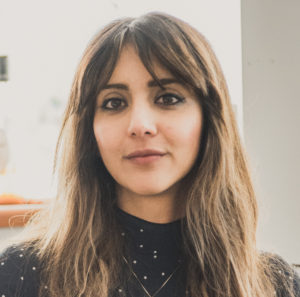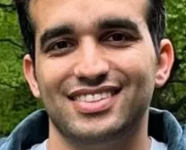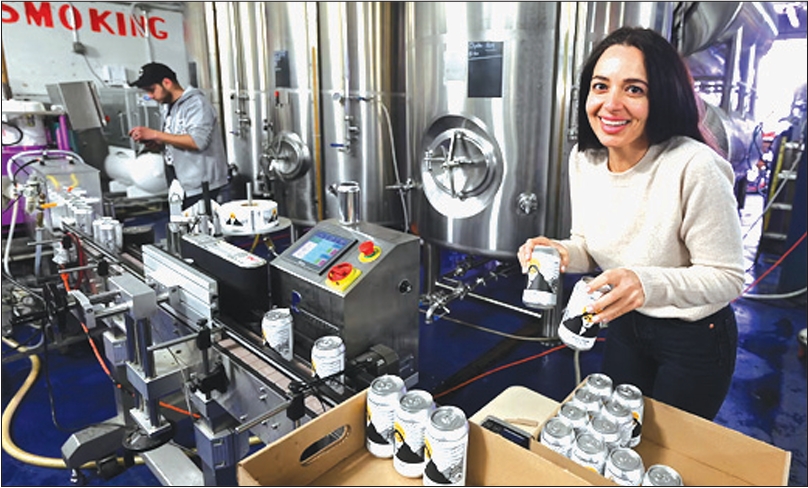October 30, 2020

Iranian-born Golriz Ghah-raman was re-elected to the New Zealand Parliament October 17 as a member of the Green Party, which came in tied for third place in the balloting.
New Zealand has a mixed election system with the 120 seats in Parliament divided between 72 elected by geographic districts and 48 elected from party lists based on the percentage vote each party gets nationally.
The Green Party does poorly in the district voting and counts on the national tallies to win seats. This year only one Green was elected from a district, while nine others, including Ghahraman, were elected from the list.
The Green Party grew from a 2017 vote of 6.27 percent and eight seats to 7.59 percent and 10 seats this year.
The big news in New Zealand was that the Labor Party won an outright majority of 64 seats in the election behind Prime Minister Jacinda Ardern, a rarity in New Zealand, and will not have to form a coalition with other parties as it did after the 2017 balloting.
Ghahraman became a national figure immediately after the 2017 election because she was the first refugee ever elected to Parliament. It also helped that her partner is Guy Williams, a comedian who is well-known nationally for his television programs.
But there were also threats and nastiness—vile, racist attacks on her background and heritage. There were allegations that a terrorist had been elected to Parliament, that she might enforce Sharia law, smuggle a bomb into the debating chamber, or push back against New Zealand’s socially progressive culture.
Ghahraman, 39, was born in in Mashhad, where her father, an agricultural engineer, worked for the Ministry of Agriculture on plant-based alternative fuels. Her mother studied as a child psychologist but was ethically opposed to “psychologists having to pledge allegiance to a religion” and so refused to take the Islamic examinations required for her to practice and never worked as a psychologist.
Ghahraman’s father was Shia and her mother a Sunni Kurd, though neither parent was religious. Ghahraman describes herself as “agnostic—some days I would say atheist.”
In 1990, nine-year old Ghahraman and her family left Iran for Malaysia, ostensibly for a holiday. From Malaysia, they booked a flight to Fiji, with a stopover in Auckland, where they sought political asylum and were accepted as refugees. Her parents later set up a restaurant and a gift shop in Auckland.
Ghahraman has a bachelor of laws and bachelor of arts in history from the University of Auckland, and a masters in international human rights law with distinction from the University of Oxford.
Ghahraman worked as a lawyer for the United Nations on the tribunals in Rwanda, Cambodia and The Hague.
She entered legal practice in New Zealand in 2012 specializing in criminal defense, describing it as “the most frontline human rights area of law you can practice in New Zealand; every day you are applying the Bill of Rights Act and you’re dealing with unlawful detention, searches and discrimination.”
She was first elected to Parliament in 2017—but only barely. The Green Party was just short of enough votes to seat her when the ballots were counted election night. But it got enough additional votes when ballots were counted from absentee voters that she won a seat.
Ghahraman spoke out against the Trump visa ban, saying in 2017: “I wouldn’t travel to America right now. I wouldn’t want to face what people are facing – held in handcuffs and being interrogated by security forces…. I wouldn’t want that [border detention] for anyone.”
She believes representation for women and minorities in politics is important: “Ultimately the sinister face of populism is what really pushed me over the edge to run as a candidate. The hate speech became scary. I knew that representation is important. I knew that to stop the very real attacks against minorities and women, we had to get really active, to support each other, and forge paths. We have to become leaders ourselves.
Ghahraman revealed that she has multiple sclerosis in an interview in February.
Her Green Party ran this year on a Poverty Action Plan, which included a guaranteed minimum income of 325 New Zealand dollars ($215) a week. This was followed up by the launch of a Clean Energy Plan, to ensure a “just transition away from fossil fuels.”


























